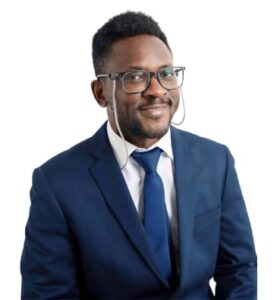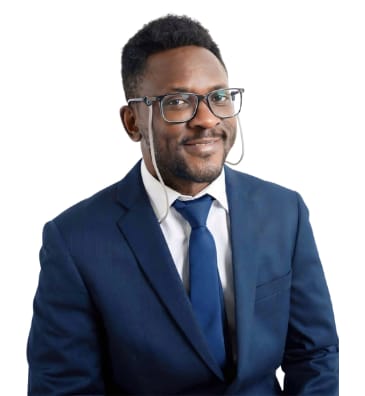 Birmingham, UK — May 18, 2025
Birmingham, UK — May 18, 2025
What happens when a doctor becomes the patient—but there is no therapist, no friend, no family, and no lifeline to hold onto?
For Dr. Kennedy Oberhiri Obohwemu, a Nigerian-born medical doctor and public health researcher, this question wasn’t theoretical. It was lived, raw, and unrelenting. And from it emerged one of the most important mental health innovations of recent years: the Self-Comforting Framework—a set of psychological theories and tools now gaining international recognition for their contribution to emotional resilience research.
Dr. Obohwemu arrived in the UK in early 2020, just days before the world changed. “I landed full of hope, ready to begin my PhD in Public Health,” he recalls. “But almost immediately, the first national lockdown was imposed. What followed was the darkest year of my life.”
With three lockdowns in his first year alone, he faced complete social isolation. There were no family members nearby. No friends. No access to part-time jobs. And no financial support. While trying to navigate academic pressures, he was simultaneously confronting emotional collapse.
“I wasn’t just on the verge of a breakdown. I broke down,” he admits. “I found myself alone in a room, talking myself through waves of despair, anxiety, and disorientation.”
But in the stillness of that suffering, something quietly formed. He began to notice the mental patterns that kept him going: affirmations, deep breaths, reframed thoughts, whispered reassurances like “You’ll be okay” or “Just one more day.” These weren’t grand acts of resilience—but they were vital. And, as he would later discover, they were deeply psychological.
From these quiet coping strategies, the Self-Comforting and Coping Theory (SCCT) was born. It became the basis for the Self-Comforting and Coping Scale (SCCS), a scientifically validated tool designed to measure how people soothe themselves in distress. At the same time, he developed the complementary Self-Comforting Attitude Theory (SCAT) and Scale (SCAS), which measure the beliefs and perceptions people hold about their self-soothing behaviours.
Together, these four contributions form the Self-Comforting Framework—the first comprehensive psychological model to assess both the behaviours and attitudes underpinning emotional resilience.
Published in leading journals (Mental Health & Prevention, Elsevier), the framework is now being used by researchers and clinicians worldwide. But it was born in silence—without a therapist, without a diagnosis, and without validation. Just one person navigating despair, trying to understand how he survived.
“We often think of resilience as loud, performative, or obvious,” says Dr. Obohwemu. “But for me, it was silent. It was internal. And that silence deserved to be studied.”
His work challenges cultural narratives that equate strength with suppression and dismiss gentleness as weakness. “Self-comforting behaviours like positive self-talk or mindfulness are often stigmatised,” he explains. “But they’re essential. And if someone believes those behaviours are indulgent or unhelpful, they’re less likely to use them—even when they’re needed most.”
This insight is especially relevant in communities where mental health support is scarce, and where survival often depends on internal, self-driven strategies. It’s also gaining traction in schools, universities, and workplace wellbeing programmes, where the framework is being used to support students and staff navigating chronic stress and burnout.
A Fellow of the Royal Society for Public Health and an academic lecturer, Dr. Obohwemu is committed to sharing his story—not just as a scientist, but as someone who understands emotional collapse firsthand.
“I didn’t build this framework in a lab. I built it in my own mind, in real time, during a crisis. And that’s why I know it works.”
His message is clear: mental health interventions must start with understanding the private tools people use to keep going—and respecting the dignity in how they survive.
What began as one man’s quiet fight to stay afloat is now reshaping how resilience is defined, supported, and measured around the world.
And in the process, it’s giving countless others permission to breathe, believe, and begin again.
………………………………………
Dr. Kennedy Obohwemu’s Self-Comforting Framework is comprised of four validated tools: SCCT, SCCS, SCAT, and SCAS.
Read the latest publication on SCAT & SCAS:
https://authors.elsevier.com/a/1l5Lw7t6PR-2EW
Access the earlier SCCT & SCCS research:
https://www.researchgate.net/publication/389969860


